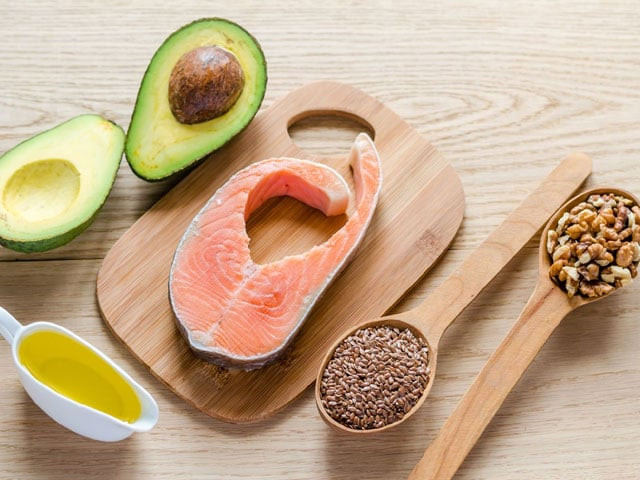7 best-ever foods for men
Here’s a list of the healthiest foods for men to keep your health and bod in tip-top shape

PHOTO: HEALTH.HARVARD.EDU
‘Daal’ and beans
Unlike animal sources of protein, beans and legumes are free of any unhealthy fats. That might be the very reason research has found that people who consumed daal and beans at least four times a week had a 22% lower risk of heart disease compared with those who consumed them less than once a week. Equally as encouraging results were published in the Canadian Medical Association Journal. A scientific review of 26 clinical trials discovered that eating a 3/4 of a cup of beans daily could reduce levels of “bad” cholesterol in the blood by 5%.
Oats
Oats are rich in a type of soluble fiber called beta-glucan and the anti-inflammatory compound avenanthramide — which, together, help prevent against obesity-related health problems including heart disease and diabetes. Studies in the American Journal of Public Health found that eating one serving of oatmeal (1 cup cooked) two to four times a week resulted in a 16% reduction in risk of type 2 diabetes. A daily bowl showed an even greater risk reduction of 39%. And a second study showed that three servings of whole grains per day, including oats, was as effective as medication in lowering blood pressure, reducing the risk of heart disease by 15% in just 12 weeks. Go oats!
Whole milk
Yes, you read that right! A 2005 Archives of Internal Medicine study found that men who consumed more full-fat dairy products had a reduced risk of type 2 diabetes. Other research suggests that dairy products may help ward off insulin resistance, which leads to type 2 diabetes. But don’t skimp on vitamin D and calcium, suggest doctors, since research shows that low levels of vitamin D may be tied to poor health outcomes. In fact, men who eat a lot of high-fat dairy products actually have the lowest incidence of diabetes, according to a 2015 study of 26,930 people in the American Journal of Clinical Nutrition. The researchers speculated that while calcium, protein, vitamin D and other nutrients in dairy are indeed good for us, we need the fat that goes along with them in order to get their protective effects.
‘Amrood’
Research suggests that those with high levels of vitamin C in their systems may also have the lowest incidence of diabetes — a common occurrence in men. But before you reach for that orange to stay healthy, consider this — amrood or guavas provide 600% of the day’s vitamin C in just one piece. A small round keenu, on the other hand, packs just 85%. Although the tropical fruit packs four grams of protein per cup, it’s best to pair guava with an additional source of protein — like nuts or a low-fat cheese stick — to ensure blood sugar levels remain even.
Eggs
Just one egg contains about 15% of the day’s riboflavin. It’s just one of eight B vitamins, which all help the body to convert food into fuel, which in turn is used to produce energy. Another reason we are obsessed with anday? They’ve been shown to aid fat loss — now do I have your attention?! In one eight-week study, people ate a breakfast of either eggs or bagels, which contained the same amount of calories. The egg group lost 65% more body weight, 16% more body fat, experienced a 61% greater reduction in BMI and saw a 34% greater reduction in waist circumference! Now that’s reason enough to love plain old omelettes!
Beef
If your go-to source of protein is beef, you are golden! Contrary to popular belief, gosht possesses the holy trifecta of muscle building for men — it’s the number one food source of creatine, which increases muscle mass by speeding protein to muscles; it’s rich in CLA, an anti-inflammatory fatty acid; and it provides more than one-half the recommended daily intake of protein in a four-ounce serving. A lean seven-ounce conventional strip steak has 386 calories and 16 grams of fat — now that’s a great deal, all while winning the battle of the bulge!
Almonds
Fact — think of each almond as a natural weight-loss pill. A study of overweight and obese adults found that combined with a calorie-restricted diet, consuming a little more than a quarter cup of the nuts can decrease weight more effectively than a snack comprising complex carbohydrates after just two weeks! There’s more — after 24 weeks, those who ate badaam experienced a 62% greater reduction in weight and BMI! For optimal results, eat your daily serving before you hit the gym. A study published in The Journal of the International Society of Sports Nutrition found that almonds, rich in the amino acid L-arginine, can actually help you burn more fat and carbs during workouts.
Published in The Express Tribune, April 27th, 2016.
Like Life & Style on Facebook, follow @ETLifeandStyle on Twitter for the latest in fashion, gossip and entertainment.












1724319076-0/Untitled-design-(5)1724319076-0-208x130.webp)






COMMENTS
Comments are moderated and generally will be posted if they are on-topic and not abusive.
For more information, please see our Comments FAQ